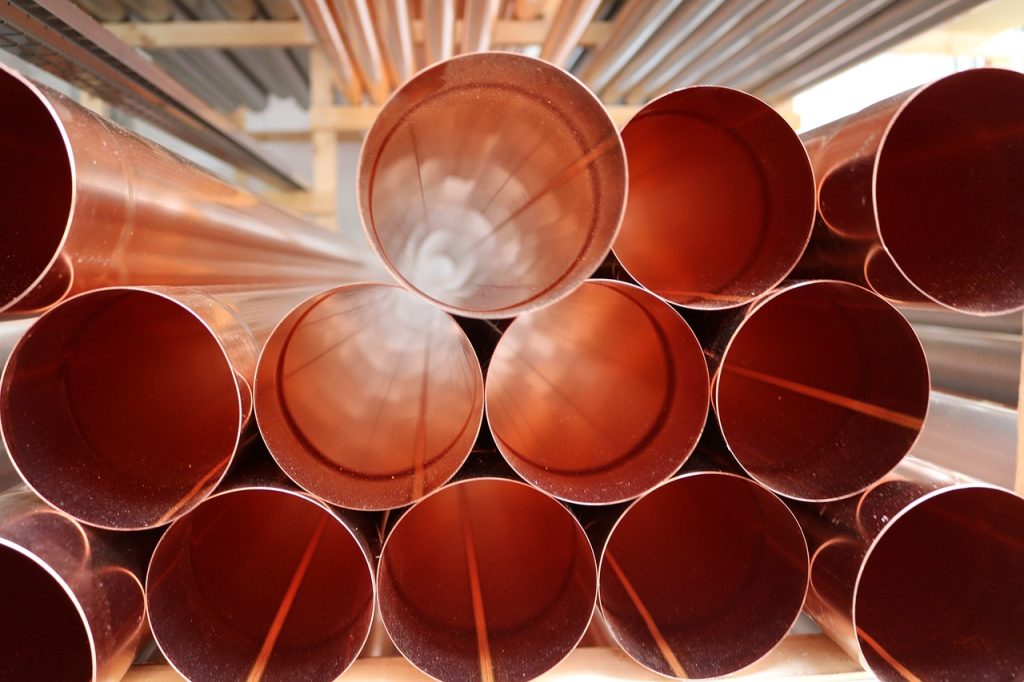Exactly how to Select the Right Copper Products for Your DIY Projects and Home Renovations
Exploring the Diverse Applications of Copper Products in Modern Industries
From improving the effectiveness of electrical systems to playing an essential duty in sustainable energy modern technologies, the adaptability of copper is obvious. As sectors significantly prioritize development and sustainability, the varied applications of copper necessitate a closer exam, especially regarding their possible impact on future environmental techniques and technological advancements.
Electrical Applications of Copper
Copper is a crucial material in the electric sector, accounting for roughly 60% of the total need for non-ferrous steels globally - Copper Products. Its exceptional electrical conductivity, which is virtually two times that of aluminum, makes it the favored choice for a large range of electrical applications. From electrical wiring systems in property and business buildings to high-voltage power transmission lines, copper ensures efficiency and reliability in electrical energy delivery
In addition to wiring, copper is essential to the manufacturing of electrical parts such as transformers, electric motors, and generators. These parts utilize copper's thermal conductivity and pliability, necessary for warm dissipation and efficient efficiency. Copper's resistance to deterioration boosts the lifespan and longevity of electric systems, making it an affordable remedy in the long term.
The growth of renewable resource resources, such as solar and wind power, has actually further raised the demand for copper in electric applications. As markets shift towards lasting energy remedies, copper's function comes to be much more critical. Generally, the versatility and efficiency qualities of copper solidify its condition as a cornerstone material within the electric industry, driving innovation and effectiveness throughout various applications.
Pipes and Piping Solutions
In modern-day plumbing systems, the selection of materials substantially influences both functionality and durability. Copper has arised as a recommended option because of its one-of-a-kind residential or commercial properties, including rust resistance and antimicrobial attributes. These features ensure that copper piping stays durable and risk-free for transferring safe and clean water, a vital consideration in property and business applications.
Among the vital benefits of copper in plumbing is its capacity to hold up against high temperature levels and stress, making it ideal for a range of applications, from warm water systems to heating and cooling networks. Additionally, copper's flexibility enables much easier installation in complex piping formats, reducing the threat of leakages and failures.
An additional noteworthy advantage is copper's long life expectancy, typically surpassing half a century with correct upkeep. This durability not only lessens substitute prices however likewise adds to sustainable methods by minimizing waste. Copper's recyclability aligns with contemporary ecological requirements, promoting a round economic climate within the plumbing industry.
Copper in Renewable Power
The adaptability of copper extends past pipes applications, playing an essential role in the renewable power market. Its outstanding electric and thermal conductivity makes it a crucial product in the manufacturing and distribution of eco-friendly energy resources, particularly solar and wind power. In solar panels, copper is made use of in solar batteries and wiring, promoting effective power conversion and transmission. Its resistance to deterioration makes sure long-lasting efficiency, which is essential for maximizing power result over time.

Furthermore, as the worldwide demand for electric cars (EVs) rises, copper's function in battery systems and charging facilities becomes a lot more considerable. The product's capability to carry out electrical power effectively is important to the efficiency of EV batteries, improving array and billing speed.
Copper's Role in Electronics
Electronic devices manufacturing counts greatly on copper's outstanding buildings, particularly its high electrical conductivity and thermal effectiveness. These attributes make copper a suitable option for a vast array of digital components, consisting of connectors, motherboard, and electrical wiring. The metal's capacity to effectively send electric signals makes sure minimal power loss, which is important in high-performance electronic devices.
Furthermore, copper's thermal conductivity plays a significant function in heat dissipation, securing sensitive parts from overheating. This is particularly essential in modern-day electronics, where portable styles result in increased heat generation. Copper is additionally favored for its pliability and ductility, permitting it to be easily pop over here formed into intricate layouts that meet the demands of innovative digital applications.
With the rise of consumer electronic devices, telecoms, and electrical vehicles, the demand for copper in the electronics industry continues to expand. Thus, copper remains a cornerstone material in the ever-expanding field of electronics.
Innovative Utilizes in Production

One notable application is in additive production, where copper-based materials are used in 3D printing processes. This permits the production of lightweight parts and complicated geometries, specifically in the aerospace and automobile markets. In addition, copper's thermal conductivity makes it an optimal selection for heat exchangers, boosting efficiency in industrial cooling systems.
In addition, the surge of smart production has actually seen the consolidation of copper in IoT tools, where its conductive capabilities sustain advanced picking up technologies. In the realm of eco-friendly energy, copper is essential in the manufacturing of photovoltaic panels and wind generators, facilitating a lot more reliable energy conversion and distribution.
As why not try here markets pursue sustainability and technology, copper's convenience and efficiency proceed to position it as an important product, driving advancements in manufacturing and contributing to the growth of smarter, much more effective items.
Verdict
The important function of copper in sustainable energy and its essential feature in electronic devices highlight its importance in advancing sustainable techniques. Jointly, these applications show copper's important payment to technical progress and industrial efficiency in modern culture.
From enhancing the efficiency of electric systems to playing an essential function in renewable power innovations, the versatility of copper is noticeable. As sectors significantly focus on innovation and sustainability, the varied applications of copper require a closer examination, specifically regarding their possible effect on future ecological practices and technical developments.
The development of eco-friendly power sources, such as solar and wind power, has actually even more raised the demand for copper in electric applications. In general, the convenience and efficiency qualities of copper strengthen find out this here its condition as a keystone product within the electric sector, driving technology and performance across different applications.
The convenience of copper prolongs past plumbing applications, playing a vital role in the sustainable power sector.